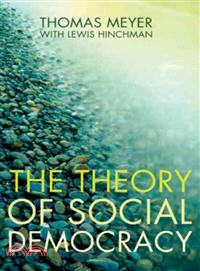"This book provides a systematic defence of social democracy for our contemporary global age. The authors argue that the claims to legitimation implicit in democratic theory can be honored only by social democracy; libertarian democracies are "defective" in failing to protect their citizens adequately against social, economic, and environmental risks that only collective action can obviate. Ultimately, social democracy provides both a fairer and a more stable social order." "But can social democracy survive in a world characterized by pervasive processes of globalization? This book asserts that globalization need not undermine social democracy if it is harnessed by international associations and leavened by principles of cultural respect, toleration, and enlightenment. The structures of social democracy must, in short, be adapted to the exigencies of globalization, as has already occurred in countries with the most successful social-democratic practices."--BOOK JACKET.
| FindBook |
有 1 項符合
The Theory of Social Democracy的圖書 |
 |
Theory Of Social Democracy 作者:MEYER 出版社:BLACKWELL PUB 出版日期:2007-06-17 規格:22.2*15.2*2.5cm |
| 圖書館借閱 |
| 國家圖書館 | 全國圖書書目資訊網 | 國立公共資訊圖書館 | 電子書服務平台 | MetaCat 跨館整合查詢 |
| 臺北市立圖書館 | 新北市立圖書館 | 基隆市公共圖書館 | 桃園市立圖書館 | 新竹縣公共圖書館 |
| 苗栗縣立圖書館 | 臺中市立圖書館 | 彰化縣公共圖書館 | 南投縣文化局 | 雲林縣公共圖書館 |
| 嘉義縣圖書館 | 臺南市立圖書館 | 高雄市立圖書館 | 屏東縣公共圖書館 | 宜蘭縣公共圖書館 |
| 花蓮縣文化局 | 臺東縣文化處 |
|
|
圖書介紹 - 資料來源:博客來 評分:
圖書名稱:The Theory of Social Democracy
自由選擇背後的行為賽局:讀哪間學校、跟誰結婚、是否生小孩、想與誰為鄰……諾貝爾經濟學獎得主教你繞開從眾偏誤,在人生關鍵時刻做出最佳決定
散戶交易天才15萬滾10億的最強短線操作攻略
女工之死:後工業時代,一則關於鬧鬼和空間記憶的人類學敘事
誰是接班人?財富傳承的管理與規劃
不施壓的領導力:哥倫比亞商學院傳授凝聚人心的領導技術
人生最後一堂理財課:見證過無數生死的安寧照護醫生告訴你如何過一個不留遺憾的人生。關於金錢、工作和幸福人生的實用建議
股市大崩壞,照樣穩穩賺:用對策略、選對標的、逢低買進,迎接財富再分配
考點直擊證券交易法爭點解讀
企業社會責任、ESG與永續發展:理論與實務
主題式會計事務(人工記帳、資訊)丙級技能檢定術科滿分題庫
散戶交易天才15萬滾10億的最強短線操作攻略
女工之死:後工業時代,一則關於鬧鬼和空間記憶的人類學敘事
誰是接班人?財富傳承的管理與規劃
不施壓的領導力:哥倫比亞商學院傳授凝聚人心的領導技術
人生最後一堂理財課:見證過無數生死的安寧照護醫生告訴你如何過一個不留遺憾的人生。關於金錢、工作和幸福人生的實用建議
股市大崩壞,照樣穩穩賺:用對策略、選對標的、逢低買進,迎接財富再分配
考點直擊證券交易法爭點解讀
企業社會責任、ESG與永續發展:理論與實務
主題式會計事務(人工記帳、資訊)丙級技能檢定術科滿分題庫
|









